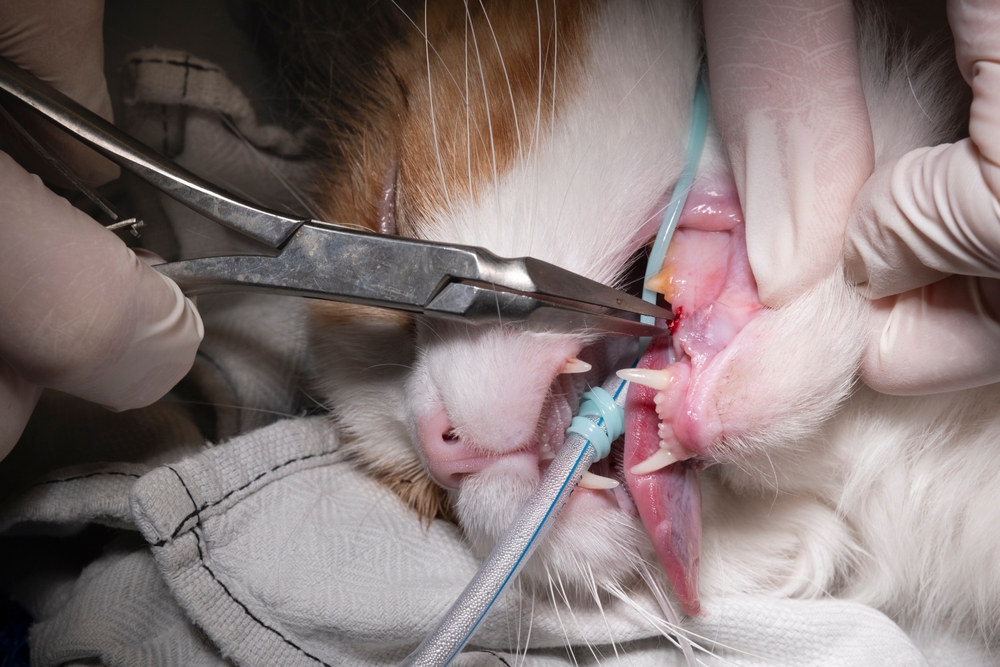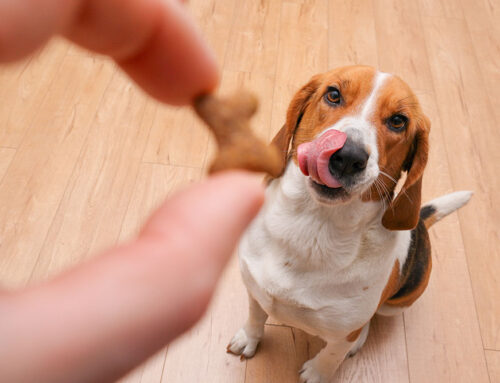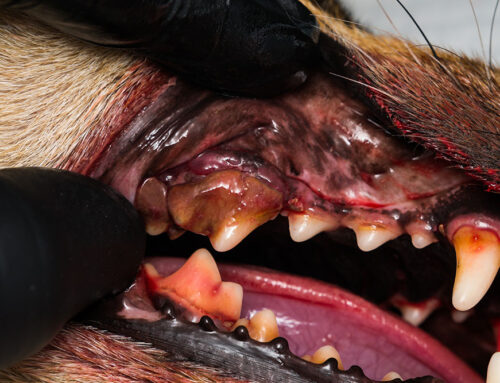Tiny Muzzles, Dental Drama: How to Recognize Dental Issues in Brachycephalic Breeds
Bulldogs, Pugs, and Persian cats often steal the spotlight with their unmistakable looks and charming personalities. But behind those smushed faces lies a set of dental challenges that many pet owners aren’t prepared for. At North Bay Veterinary Dentistry in Petaluma, California, we specialize in helping brachycephalic pets live healthier, more comfortable lives, and that starts with understanding their unique dental needs.
What “Brachycephalic” Means
The word “brachycephalic” refers to animals with broad, short skulls that result in flat-faced features. While adorable, this compressed facial anatomy causes structural challenges, especially when it comes to dental health.
These breeds often have the same number of teeth as longer-nosed pets, but with far less room to fit them. The result? Crowded, misaligned teeth that are harder to clean and more prone to disease.
Their compact skulls can also contribute to breathing problems, like Brachycephalic Obstructive Airway Syndrome, which may further complicate oral health and anesthesia safety.
Why Dental Issues Are So Common in Brachycephalic Breeds
When you pack a full set of teeth into a space that’s too small, problems are bound to pop up. Common dental issues for Bulldogs, Pugs, Bostons Terriers, and other flat-faced pets include:
- Malocclusion (misaligned teeth): Can lead to pain, ulcers, and difficulty chewing.
- Crowding: Creates perfect hiding spots for plaque and bacteria.
- Retained baby teeth: These can block adult teeth from erupting properly.
- Gum overgrowth (gingival hyperplasia): Creates deep pockets where bacteria thrive.
While these issues start in the mouth, the consequences can extend much further. Poor dental health has even been linked to other serious health issues, such as heart, liver, and kidney problems.
A Closer Look at Common Dental Conditions in Brachycephalic Breeds
Malocclusion
Malocclusions, such as overbites, underbites, and crossbites, are especially common in brachycephalic pets. These misalignments can cause teeth to press into soft tissue, leading to painful sores and long-term damage. Depending on severity, treatment may include extractions or even orthodontic care.
Crowding and Retained Deciduous Teeth
With less space to work with, brachycephalic pets are more likely to retain baby teeth. These teeth don’t just overstay their welcome, they cause misalignment, interfere with adult teeth, and trap food and bacteria. Surgical extraction is often necessary.
Periodontal Disease
This silent but serious condition starts as gingivitis and can progress to periodontitis if left untreated. Symptoms include:
- Persistent bad breath
- Bleeding or swollen gums
- Loose or missing teeth
- Visible tartar buildup
Beyond oral discomfort, periodontal disease has been linked to infections in vital organs.
Gingival Hyperplasia and Unerupted Teeth
Gingival hyperplasia, excess gum tissue growth, may sound minor, but it creates deep pockets that encourage plaque buildup. Surgery is often the most effective solution.
Unerupted teeth are another hidden issue in short-muzzled pets. These teeth fail to emerge through the gums, creating cysts that can damage surrounding bone and neighboring teeth. Because unerupted teeth are not visible during a basic oral exam, advanced imaging such as Cone Beam Computed Tomography (CBCT) is essential for early detection. At North Bay Veterinary Dentistry, CBCT is part of our standard of care, allowing us to identify and treat these hidden risks before they cause irreversible damage.
Cleft Palates and Related Complications
Some brachycephalic pets are born with congenital defects like cleft palates, where the roof of the mouth doesn’t form properly. This creates an opening between the nasal cavity and oral cavity, leading to difficulty nursing, chronic respiratory infections, and poor weight gain in puppies and kittens.
Repairing a cleft palate requires highly specialized oral surgery and careful anesthesia planning. At North Bay Veterinary Dentistry, our surgical team is experienced in these delicate procedures, ensuring pets with congenital challenges have the best possible outcome.
Preparing for Your Vet Visit
We start with a consultation to review your pet’s history, evaluate their oral health, and outline a care plan with clear, itemized estimates. This first step ensures we fully understand your pet’s needs, whether they’re coming in for a routine cleaning, extraction, or a more complex procedure such as cleft palate repair.
We also discuss your pet’s overall health status, review any medical concerns, and coordinate additional testing if needed. Our team places strong emphasis on individualized care, so your pet’s treatment plan is designed specifically for them.
Anesthesia Expertise for Complex Cases
On the day of the procedure, anesthesia is always the first step. For brachycephalic breeds, anesthesia requires additional expertise. Pets with shortened airways, enlarged tongues, or stenotic nares face higher risks, and our protocols are designed to minimize those challenges.
At North Bay Veterinary Dentistry, we have over a decade of experience anesthetizing patients ranging from fragile 8-week-old kittens to geriatric dogs with heart or kidney disease. We regularly consult with a board-certified anesthesiologist when needed, and every patient is monitored continuously by skilled technicians throughout their procedure. Our anesthesia protocols are tailored to each patient, ensuring a safe and stress-free experience.
Imaging and the Oral Exam
Once your pet is comfortably under anesthesia, we begin with advanced imaging and a complete oral examination. Full-mouth dental x-rays and Cone Beam Computed Tomography (CBCT) allow us to identify hidden disease that cannot be seen on the surface. These tools are especially important for brachycephalic pets, who are at higher risk for issues like unerupted teeth, cyst formation, and congenital abnormalities.
This diagnostic stage is critical in shaping the treatment plan, ensuring that no problem goes undetected and that every recommendation we make is based on a clear picture of your pet’s oral health.
Dental Treatment Options
After imaging and examination, we proceed with the therapies your pet needs. No two treatment plans are the same, and brachycephalic pets often require multiple interventions:
- Professional Cleaning: Even diligent at-home brushing cannot remove all plaque below the gumline. Our professional cleanings include scaling, polishing, and probing each tooth. Unlike anesthesia-free cleanings, our method ensures a complete and stress-free result.
- Tooth Extractions: When a tooth is severely diseased, damaged, or causing overcrowding, extraction may be necessary to restore comfort and prevent infection. We confirm complete removal with postoperative imaging to ensure proper healing.
- Root Canals and Crowns: When possible, we may save important teeth through root canal therapy or protect them with crowns.
- Gum Surgery: For pets with gingival hyperplasia or unerupted teeth, gum surgery restores a healthier gumline and reduces the risk of infection.
- Orthodontics: Some malocclusions can be managed with orthodontic devices that reposition teeth for long-term comfort and function.
- Surgical Repair of Complex Conditions: Congenital and acquired issues such as cleft palates, jaw fractures, or unerupted teeth may require advanced surgical intervention. These procedures demand careful anesthesia planning and the precision only a board-certified dental specialist can provide.
All treatments are performed in a calm, controlled environment under anesthesia, with safety as our top priority.

Recovery and Going Home
Once your pet’s dental care is complete, we carefully manage their recovery from anesthesia. Special attention is given to brachycephalic pets, whose airways require extra time and gentle handling during extubation. Pain management and comfort are a central focus during this stage.
Before heading home, you’ll receive a personalized care plan outlining aftercare instructions, pain medication schedules, and any follow-up recommendations. Our goal is to ensure you feel confident supporting your pet’s recovery at home while knowing that our team is always available if questions arise.
Your Partner in Dental Health for Brachycephalic Breeds
At North Bay Veterinary Dentistry in Petaluma, California, we understand the special care brachycephalic breeds need. From underbites to cleft palate repair, we bring the highest level of technology, skill, and anesthesia expertise to every patient.
If you’re noticing signs of dental discomfort or want to stay ahead of problems, contact us today. Our dedicated team is ready to provide gold-standard care, so your pet can enjoy a healthier, more comfortable life.






Leave A Comment